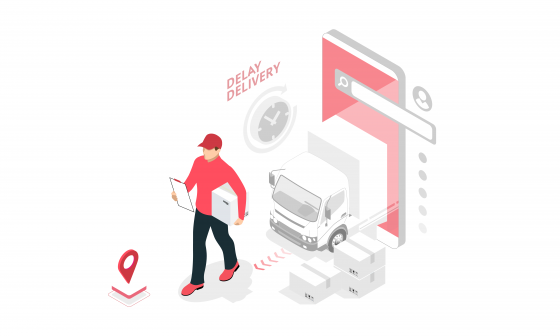eCommerce sales are growing at a rate of 13% YOY. In 2019 alone the worldwide eCommerce sales were 18% higher. Competition in eCommerce is cutthroat. In order to stay relevant in the eCommerce race, you need to constantly upgrade your eCommerce platform. Here we list the top ten eCommerce platforms that can set your store up on the path to success.
When you choose the right eCommerce platform it instantly catapults your customer engagement rates, slashes down the operation costs and boosts your sales revenue. An important factor to consider is the ease of adoption. So effectively when you are shopping for the best eCommerce platform ask yourself :
Can this software get you on the fastest lane to massive sales figures?
Here we list the pros and cons of 10 best E-commerce platforms
Shopify: Shopify is one of the most popular e-commerce platforms which offers users an easy-to-use space to manage their online business. Their admin panel which allows you to easily manage all functions – Payments and marketing to shipping and customer engagements. It is one of the most widely used platforms because of its ease and comfort it provides. As per a report in 2019, Shopify has more than 100000 registered businesses in approximately 175 countries!
Benefits:
- Easy to set up and use
- Highly secure and reliable
- Incredible customer support team
- Fantastic marketing tools available
Disadvantages:
- The monthly platform fee is quite high.
- There are several other charges like credit card fees, transaction fee, and add-on fees which make using Shopify a bit expensive for businesses.
BigCommerce: BigCommerce is a popular shopping cart software that is used by a large number of businesses to run their online stores. There are many incredible features that help these companies engage their customers well. The reliability and flexibility which this platform offers are unparalleled. It is best suited for those businesses who are looking for rapid expansion and a significant boost in sales!
Benefits:
- Advanced SEO tools
- Allows sale across multiple platforms
- Enables you to build mobile-friendly stores
- Manage all payments, returns and other customer engagements easily
Disadvantages:
- Advanced features add layers of complexity for first-time users
- Delay in the time taken to go-live
Magento: Choosing the right e-commerce platform to build your business can be a tough decision but it’s highly relevant! Magento offers the business owners full control over the look, content and functionality of their online store. It is built on an open-source technology that is being used by over 240000 businesses across the world. It allows secure scaling options even to those shops which have limited product options. Magento is meant for those who aren’t app developers and want to use software that is not too complex!
Benefits:
- It’s a spacious and robust platform that can handle almost 500000 products on one site and easily manage up to 80000 orders per hour.
- Third-party integrations with platforms like PayPal, eBay, mail chimp etc. are very easy.
- Versatile plug-in options can be used at highly cost-effective prices
- Provides more than 50 payment gateway options
Disadvantages:
- Consumes ample disk space while running, hence not suitable if you do not have a robust hardware
- Works slower than other e-commerce platforms
3D Cart: 3D cart is a robust platform designed to help online businesses thrive in this highly competitive market. It was created to gather all the online companies under one roof, and as of now, they have been able to attract more than 17000 users on their platform. This is ideal for mid-tier startup businesses. This highly versatile platform allows you to create and operate your online store and manage all your customers effortlessly.
Benefits:
- There are no transaction fees which makes this platform highly cost-effective.
- It offers a wide variety of built-in marketing tools to help businesses grow.
- The platform is highly versatile.
- There is unlimited storage available.
Disadvantages:
- There are a lot of features and exploring them requires prior knowledge and experience.
- The customer service team is moderate.
OpenCart: OpenCart offers a complete solution to all e-commerce businesses to build and manage their online stores effortlessly. It’s a free platform that provides all the functionality that you need for operating your online store. Its very simple to learn and the interface it offers is highly user-friendly. I
In order to start using OpenCart, all you need to do is download the software from their website. The costs involved would be of the hosting plan that you choose and the domain name that you would purchase. Also, there are certain templates and features which come with a price tag. With OpenCart, you can take your business to greater heights effortlessly!
Benefits:
- Provides extensive reports about your business; available in easy to interpret formats
- It is compatible with all payment gateways.
- Highly cost-effective platform
- Many shipping mode options available for you to use
Disadvantages:
- SEO customization requires specialized knowledge as the OpenCart platform creates multiple duplicate pages.
- As per customer experiences, the checkout process is comparatively slower.
Big Cartel: Big cartel is a website builder tool that allows small merchants having a lesser number of products to build a website to sell their items online. This platform is targeted towards artists, photographers, content creators etc. who do not aim to reach millions of people but are limited to maybe hundreds.
The plans offered are Gold, the free base pack, Platinum for $9.99per month, Diamond for $19.99per month and Titanium for $29.99per month.
Benefits:
- The base pack offered is free, which allows the users to sell up to 5 items without paying anything.
- The website does not charge any commission on sales.
- The plans are economical.
- The user interface is not very complicated.
Disadvantages:
- Does not offer a lot of options in terms of themes and customizations.
- The base pack does not allow customization of templates.
WooCommerce: WooCommerce for WordPress is an open-source e-commerce plugin. It is the most commonly used for creating a website since it offers around 330 extensions and over 1000 plugins. As per the reports for the year 2018, WooCommerce has more than 39 million downloads and is being used in by over 3 million websites worldwide. The themes provided by WooCommerce are being sold by other third party websites too. Themeforest, WordPress.org, and Mojo Themes respectively use 1135, 548 and 240 themes created by WooCommerce.
Benefits:
- Being an open-source plugin, it can be used by anyone without paying any fee.
- It offers detailed order tracking and customer engagement tools, which gives it a professional touch.
- It is updated on a regular basis; thus, compatibility and security isn’t an issue.
- It offers various customizations that can be used to make your websites stand out.
Disadvantages:
- Though the plugin is free, users might have to pay for using a specific set of themes.
- Since it is a plugin and not an entire platform, users first need to have some prior knowledge about the functioning of WordPress.
Squarespace: Squarespace is a service provider that provides software as a service for building websites. It offers facilities such as pre-build website templates and drag and drop widgets to users which enhances their ease and comfort. It rapidly grew from 1 employee in 2003 to raise a venture capital of $78.5 million in 2014. As of 2016, it hosts more than 1 million websites. It offers four types of plans which are
- Personal Plan for $12 per month.
- Business Plan for $18 per month.
- Basic Plan for $26 per month.
- Advanced Plan for $40 per month
Benefits:
- It offers a variety of templates to the users, and these are both professional and beautiful.
- Being an all in one platform every plugin, template etc. is wholly owned by Squarespace; thus compatibility isn’t an issue.
- It offers speed along with safety if the website of any of their user is hacked, it is Squarespace’s responsibility.
- They also offer 24/7 customer support through live chats.
Disadvantages:
- Though the customer support is provided 24/7, it can only be used via text as there is no phone support offered.
- Other than the export of data and blog data, it does not provide any other backup feature.
PrestaShop: PrestaShop is a France based company that provides open-source e-commerce solutions. It has over 300,000 users and is available in more than 60 languages. It offers more than 300 built-in features for managing payments, shipping, etc. PrestaShop Cloud was launched in January 2015 which is a free self-hosted version of the software. It received the Acteurs du Libre International Award in the year 2019.
Though the basic plugin is open source, it has support plans which are paid — starting $33.25per month as the basic plan and $116.58per month as the deluxe plan.
Benefits:
- PrestaShop takes very little space, i.e. around 6mbs, it is easier and quicker to install.
- It provides a lot of flexibility in terms of customizations and addition or deletion of features.
- It uses secure payment gateways like Google Checkout and PayPal;
- It is budget-friendly as the base plan is free.
Disadvantages:
- It is aimed at low budget stores only and hence lacks the finesse.
- Scalability options are limited.
EKM: EKM formerly known as Powershop, is a company based in the UK which helps the users in building an online store. EKM reduces the efforts of coding, web developing etc. for its users. \ Not only this but it provides user assistance at every step of website creation to make sure that the users are never stuck at any point.
EKM is used by over 5400 websites that account for a total of around 0.48% market share. It is most commonly used in the UK with more than 1700 sites. The base plan for EKM starts at $29.99 per month.
Benefits:
- EKM claims up to 99.99% uptime i.e. the servers are rarely down; thus, the customers never feel disappointed.
- It provides online retailers with facilities such as live chat.
- Facilities such as free domain names are made available to the users.
- A dedicated account manager is provided to every user.
Disadvantages:
- No free trial or free base plan is offered.
- They charge a substantial amount of around 20% as VAT in each of their monthly plans.





